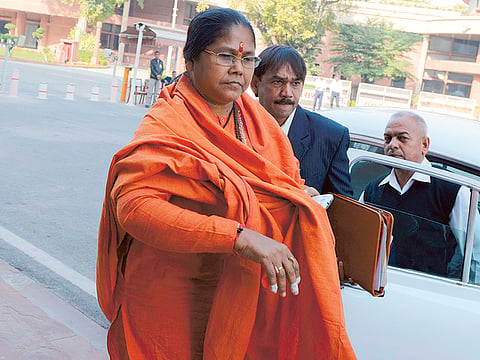Keyboard warriors’ two-edged sword
Social media is a two-edged sword where things go viral like wildfire

New Delhi: With internet and social media around, hate speech, believed by politicians to be a shortcut to garner publicity, is increasingly posing vexing and complex problems to modern day civil society.
Hate speeches and controversial remarks have been around, but internet and social media have taken it to a whole new level, making it more interactive, which augments chances of direct conflict among people.
Spreading false rumours is the oldest trick in the book for those who seek to initiate a riot, they say, and social media is executing it all so well. With people expressing their own and others’ political and social views publicly and in a rather frank manner, this fondness for freedom of expression has led to emergence of a disturbing trend over the years.
Social media is a two-edged sword where things go viral like wildfire. Marked with a great sense of openness, social media has proven itself to be the greatest bastion of free speech with governments usually refraining from interfering in this domain. Users online are posting, uploading photos and videos and commenting about the reckless utterances of irresponsible politicians, without considering how it vilifies other groups or persons.
The speeches by politicians such as Majlis-e-Ittehadul Muslimeen party chief Akbaruddin Owaisi or Vishwa Hindu Parishad (VHP) President Pravin Togadia are not surprising. Owaisi faces serious charges of waging war against the state, sedition, promoting enmity and malicious acts to outrage religious feelings. These people have a stake in inciting hatred. But what is horrifying is that these people have a huge audience on social networking sites which applauds the hatred.
According to writer Gowhar Geelani, “hate speeches in diverse India are not rare, but those delivering venomous speeches have more often than not either evaded their arrest, dodged the authorities, or not been taken to task for various reasons; strong backlash from their followers in the real and the virtual world being one of the many fears.”
Interestingly, the 1984 violence against Sikhs in Delhi was believed to be incited by the rumour that Sikhs had poisoned water-tanks in the city.
In August, 2012, India blocked about 250 websites and social networking pages, accusing them of spreading inflammatory content that triggered panic among thousands of workers and students from the country’s seven northeastern states.
The government’s blamelist ranged from Facebook to fundamentalist Pakistani sites, Twitter to text messages, and Google to YouTube videos. Authorities also barred the sending of text messages to more than five people at a time for two weeks. The government said a number of websites had deliberately tried to inflame passions, posting exaggerated comments by some local politicians and hosting morphed videos of violence against Muslims in Burma and asserting they were filmed in Assam.
According to blogger Prasant Naidu, “the Government of India has blamed social media for hate speeches and inciting riots. This is not the first time that the government has done this and they have already taken action — 245 photo uploading websites have been blocked, 80 plus internet pages and Facebook accounts have been blocked, six parody accounts of the Prime Minister’s Office have been blocked. Subsequently, it has pressured social media giants Facebook, Twitter, and Google to obey them. But will this trend of hate speech removal also not lead to a lid on freedom of speech?”
Generally speaking, free speech is quintessential for maintaining democracy because it facilitates the exchange of diverse opinions. In a representative democracy, dialogue facilitates the testing of competing claims and obtaining of diverse input into political decision making. Free speech is also essential to the enjoyment of personal autonomy.
Controversial Bengali writer in exile Taslima Nasreen supported Owaisi’s arrest last year, but raised some concerns about the possible threat to free speech. “If you make hate speech illegal, you make free speech illegal. Book Owaisi only for making violent threats,” Nasreen had said.



